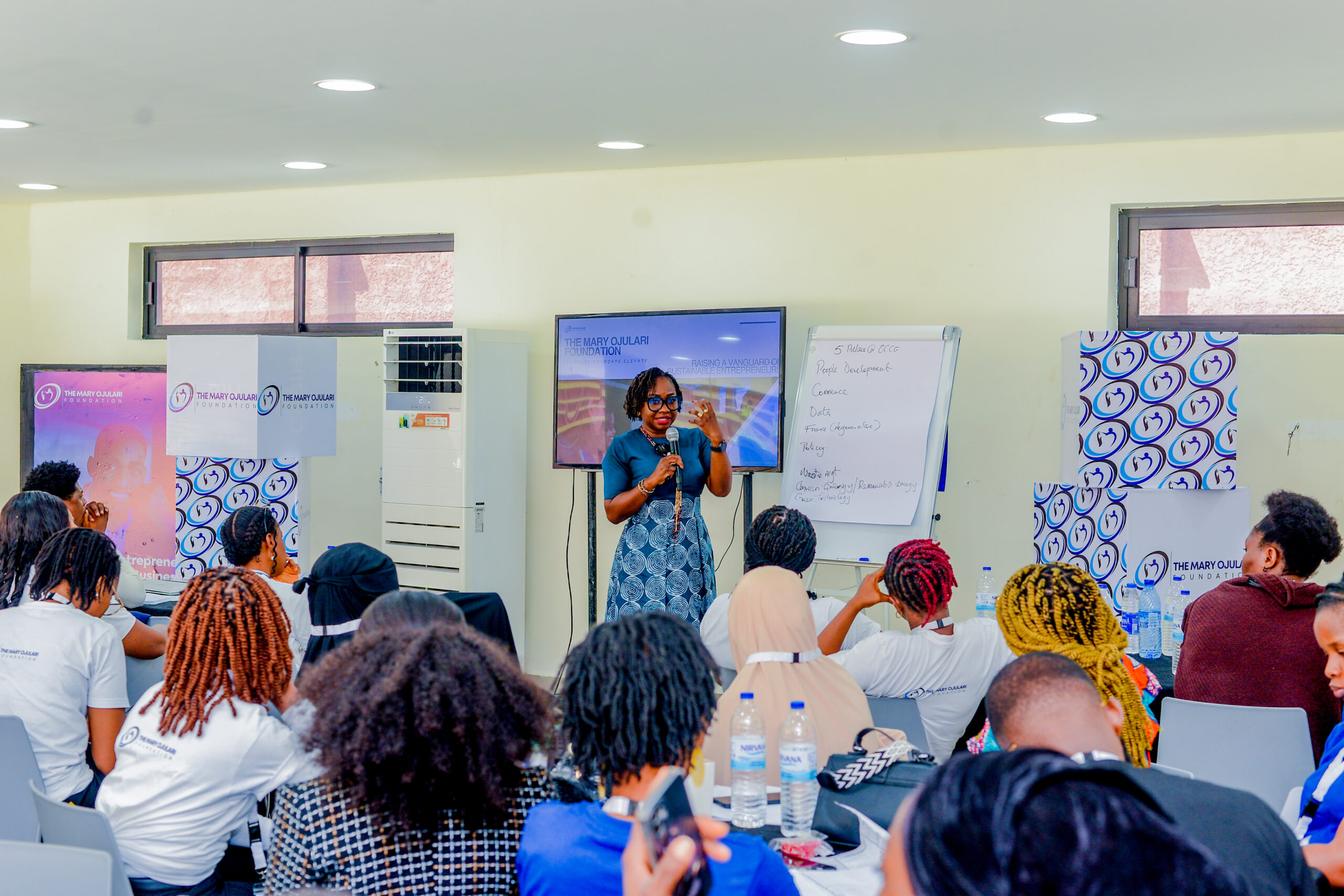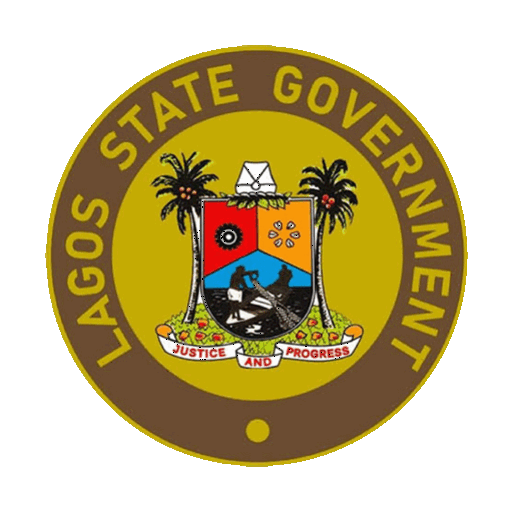
Titi Oshodi Urges Entrepreneurs to Adopt Greener Business Models at Ignite Bootcamp.
Lagos, March 29th, 2025
Titilayo Oshodi, the Special Adviser to the Governor on Climate Change and Circular Economy, engaged a room full of entrepreneurs, small business owners, and artisans on the importance of integrating sustainability into business practices. This impactful session took place during the Vanguard Fellowship Ignite Bootcamp, a two-week capacity development programme organized by the Mary Ojulari Foundation in Lagos.
Speaking to over 50 participants, Titilayo Oshodi emphasized that advocating for sustainability and circular economy should not be limited to government-led activities alone. Instead, she explained, true impact comes from empowering people with knowledge, especially entrepreneurs, so they can apply these principles in practical ways within their businesses and everyday life.
She introduced the five strategic pillars that guide the work of the Office of Climate Change and Circular Economy (OCCE): People Development, which focuses on equipping individuals with the right skills and mindset; Commerce, which encourages the growth of green businesses; Data, for informed and measurable decision-making; Regenerative Finance, which prioritizes funding models that replenish and sustain environmental resources; and Policy, which creates the enabling environment for climate action and innovation.
Titilayo Oshodi’s talk was not just theoretical, it evolved into a dynamic, practical conversation with the entrepreneurs present. She encouraged them to think deeply about how their businesses can adopt sustainable practices. She spoke about the concept of valorisation, explaining how waste, such as plastics or textiles, can be turned into valuable products like bags, shoes, or even furniture. She also touched on afforestation, highlighting the role of planting trees and reclaiming green spaces in urban areas as part of long-term environmental responsibility.
She encouraged the participants to design their businesses with climate adaptability in mind ensuring their operations can withstand the realities of climate change. She spoke on the power of digitized procedures, where automating processes not only increases efficiency but can reduce energy consumption and waste. Discussing the supply chain, she explained how a sustainable supply chain takes into account the environmental and ethical impact at every stage from sourcing raw materials to product delivery.
A particularly engaging moment came when she spoke about promoting the use of bicycles for delivery in congested cities like Lagos. Not only does this reduce emissions, she said, but it also promotes healthy living and cost savings. She also encouraged small businesses, especially those in food or agriculture, to embrace composting as a way to recycle organic waste and improve soil health. On sustainable building, she emphasized the importance of using eco-friendly construction methods and materials for homes and business premises to reduce long-term energy use and environmental degradation.
Finally, Titilayo Oshodi urged the entrepreneurs to think of sustainability as a pathway to opportunity. “We must begin to incentivize waste to encourage better waste management. Our financing models must be regenerative not extractive. And our solutions must be adaptable if they are to stand the test of time,” she said.
The event showcased the value of merging environmental consciousness with economic ambition and offered participants clear, actionable insights on how to align their ventures with global sustainability goals.


